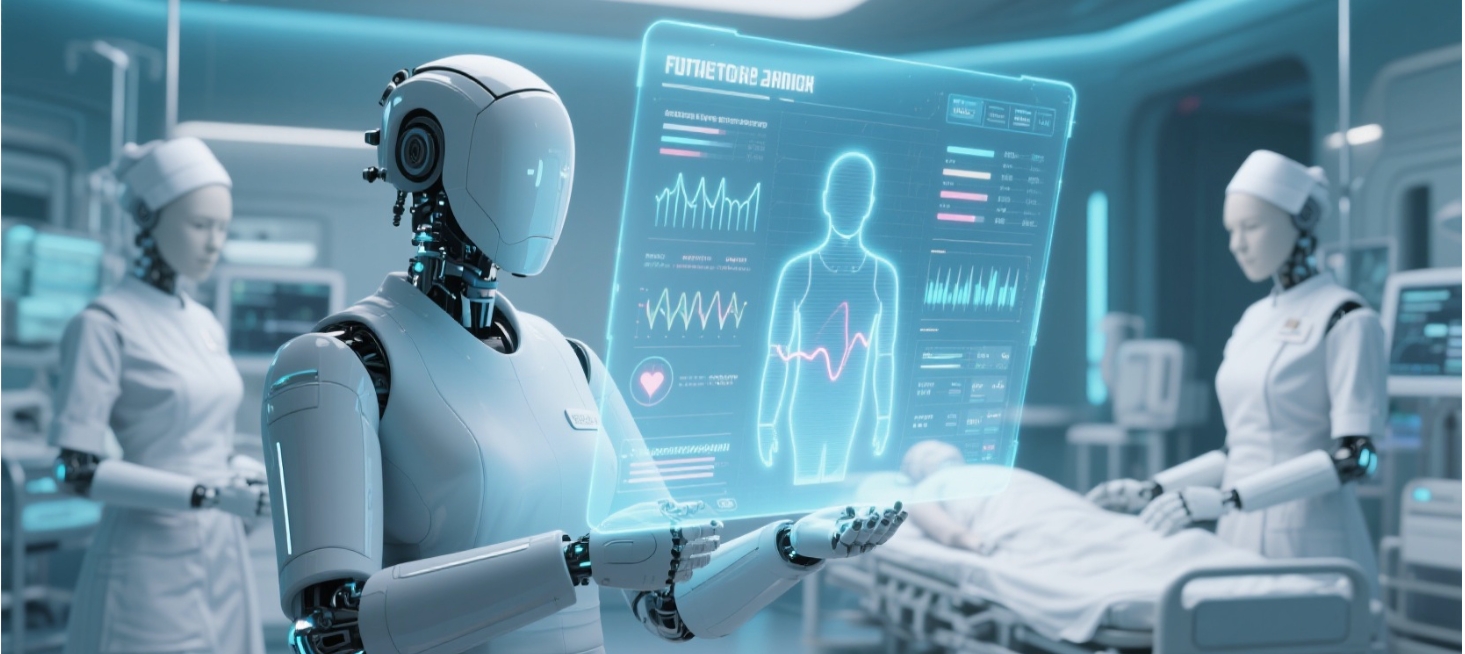The medical industry is closely related to life and health and attaches great importance to the accuracy of diagnosis and the efficiency of treatment. Against this backdrop, artificial intelligence agents with powerful intelligent analysis and decision – making support capabilities are gradually becoming reliable allies for medical professionals.
1. In – depth role in disease diagnosis
Multidimensional data processing
In the process of disease diagnosis, artificial intelligence agents have the remarkable ability to quickly process patients’ multi-dimensional data. This covers a wide range, including medical history, various imaging examination methods (such as X-rays, CT scans, magnetic resonance imaging), and laboratory test results. By comprehensively comparing with extensive medical knowledge bases that continuously incorporate the latest global research findings and case studies, they can provide well-founded diagnostic references for doctors.
Image analysis accuracy
When analyzing imaging data such as X-rays and CT scans, artificial intelligence agents do perform excellently. They are equipped with advanced algorithms that can accurately identify the characteristics of lesions. For example, they can detect the early signs of lesions that might be overlooked by human doctors due to their subtlety or complexity. Some artificial intelligence models have been trained with millions of images, enabling them to recognize patterns and abnormalities that human eyes often miss. Such early detection can be crucial for timely treatment and improving patients’ prognoses.
2. Contribution to the formulation of treatment plans
Personalized treatment suggestions
In the field of formulating treatment plans, AI agents adopt a holistic approach. They comprehensively consider the individual circumstances of patients, including factors such as age, gender, lifestyle, genetic makeup, and previous medical conditions. In addition, they take into account the progression of the disease, analyzing how the disease evolves over time and its possible future development trajectories. By combining this information with the past treatment effects of similar cases and the latest global medical research results, AI agents can provide highly personalized treatment recommendations.
Evidence-based decision-making
These suggestions are not made randomly; they are based on reliable evidence from a large amount of medical literature and real – world data. For example, in the field of oncology, artificial intelligence systems can analyze different chemotherapy regimens, taking into account factors such as drug efficacy, side – effect profiles, and specific gene mutations of patients. This helps doctors make more informed treatment decisions and select the most appropriate treatment plans for each patient.
3. Impact on the management of medical resources
Process optimization
Artificial intelligence agents also play an important role in medical resource management. They can optimize processes such as patient registration and hospitalization arrangements. By analyzing historical data on patient flow, appointment schedules, and available medical resources, artificial intelligence agents can create a more efficient system. For example, they can predict peak hours and allocate personnel and equipment accordingly to ensure the most effective use of resources.
Reduce patients’ waiting time.
One of the most significant impacts of artificial intelligence in medical resource management is the reduction of patients’ waiting time. By streamlining administrative processes and optimizing resource utilization, patients can receive medical treatment from doctors more quickly. This not only improves the patients’ medical experience but also has a positive impact on the overall efficiency of medical services. For example, some hospitals are using AI – driven triage systems, which can prioritize patients according to the severity of their conditions, ensuring that patients with urgent needs can receive immediate attention.
In conclusion, artificial intelligence agents are changing the medical field in multiple aspects. They can handle large amounts of data, provide accurate diagnostic references, offer personalized treatment suggestions, and optimize the management of medical resources. This makes them an invaluable asset in the pursuit of more accurate diagnoses and efficient medical services. With the continuous development of technology, we can expect artificial intelligence agents to play an even more important role in improving the quality of medical services and saving lives.

用

Leave a Reply